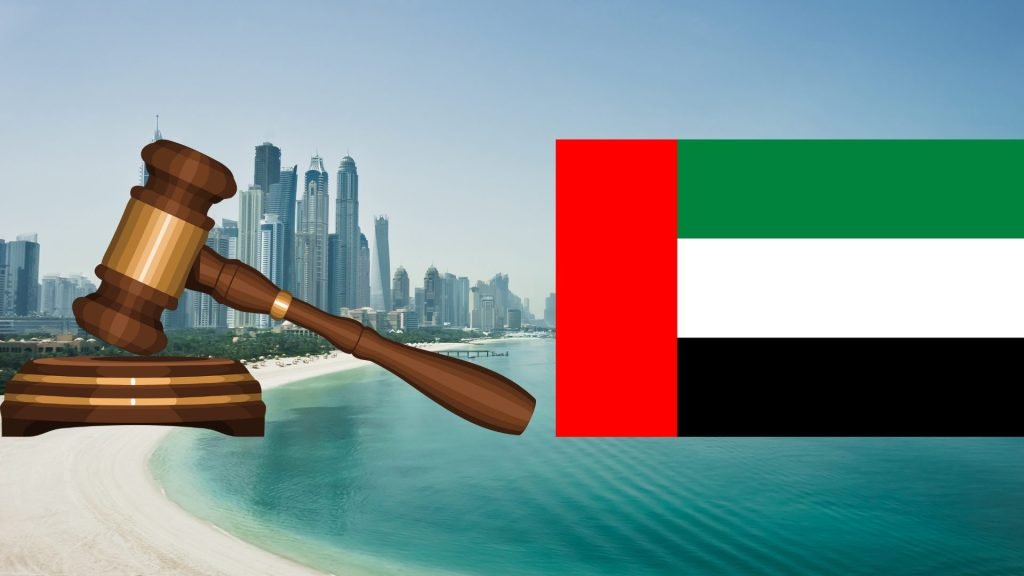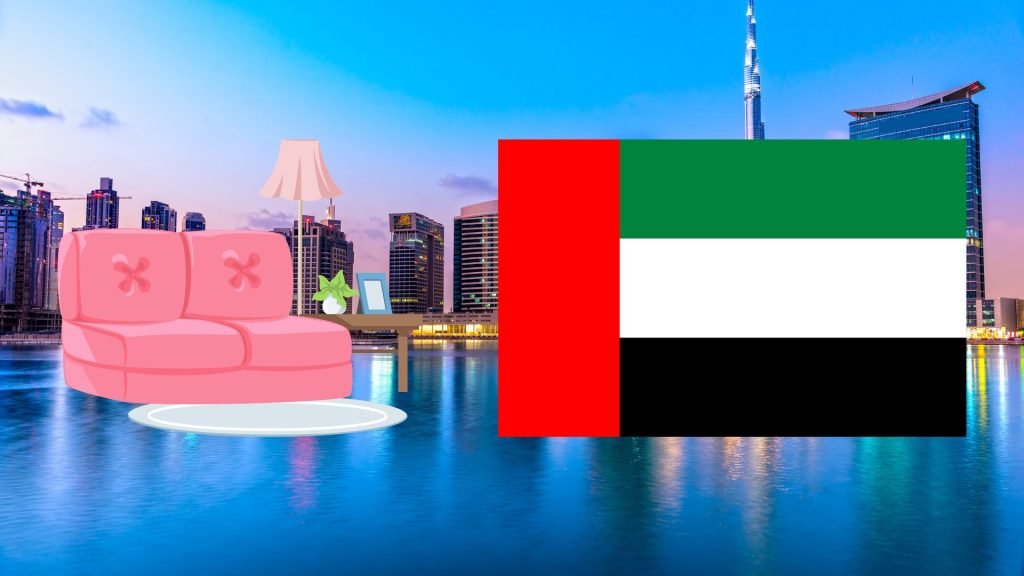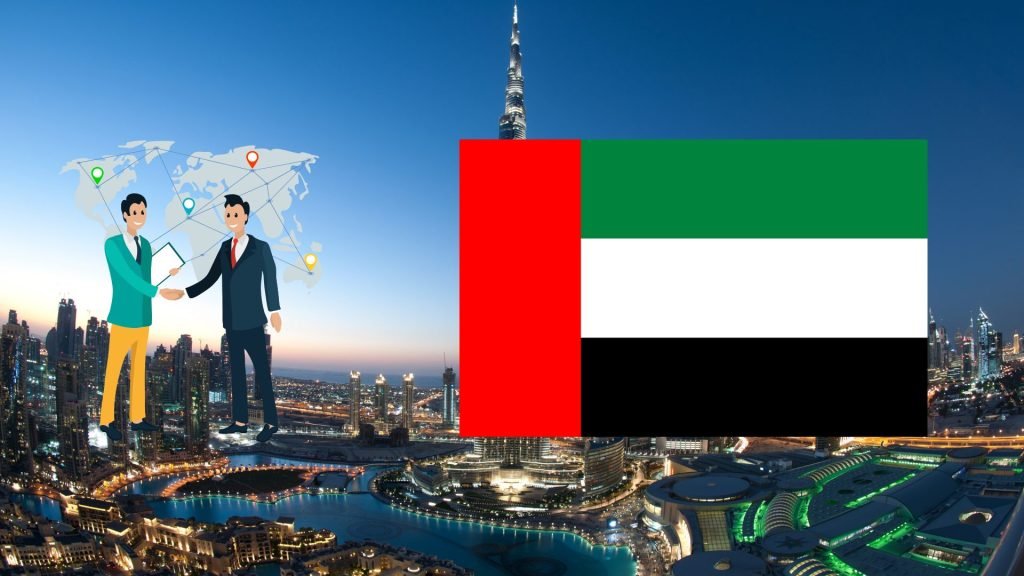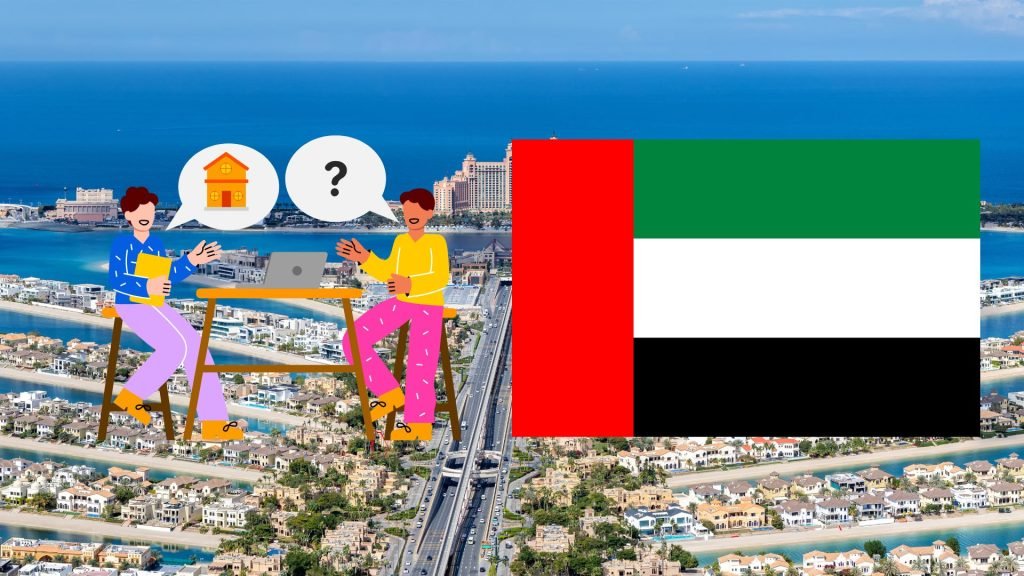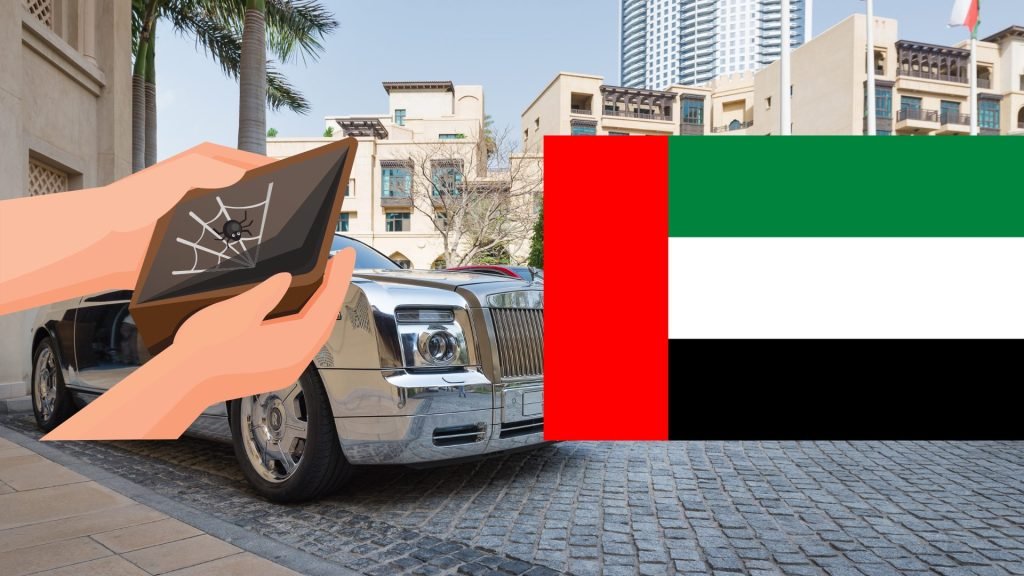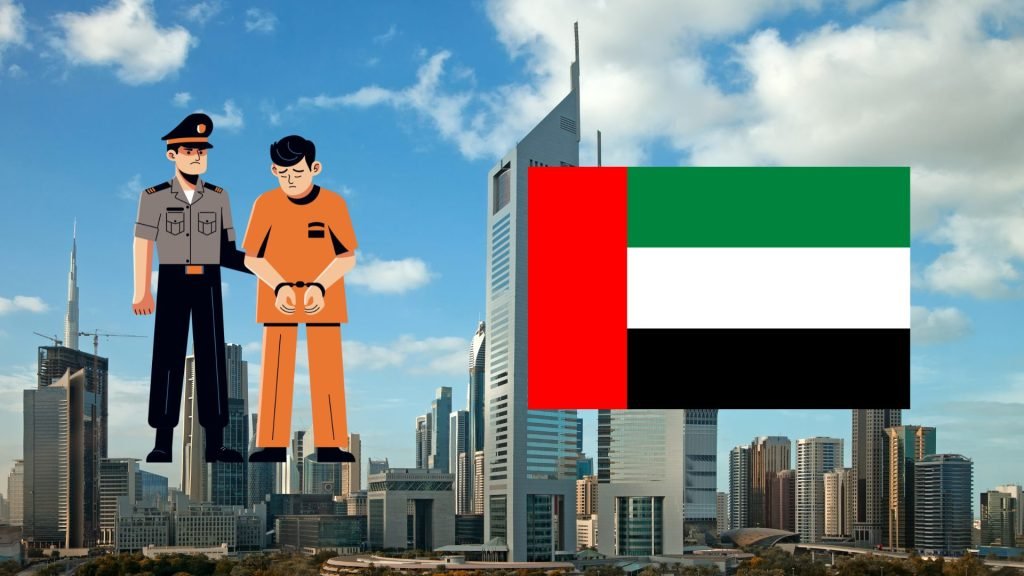Dubai is a popular destination for people who want to emigrate, invest or work abroad.
One of the first questions that comes up with such a big step is: What is the currency in Dubai? In this article, you’ll read everything you need to know about the official currency of the United Arab Emirates, how to handle it, which notes and coins are in circulation, and what to keep in mind when dealing with financial matters in Dubai.
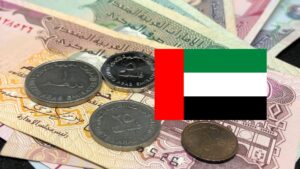
What is the official currency of Dubai?
What is the official currency of Dubai? The official currency in Dubai and the rest of the United Arab Emirates is the UAE Dirham, abbreviated as AED. In daily use, you may also encounter the abbreviations Dh or Dhs, but AED is the international and official standard.
The dirham is divided into 100 fils, comparable to cents in the euro. Although coins of 1, 5, and 10 fils exist, they are hardly used anymore. In practice, amounts are rounded to 25 or 50 fils, or to whole dirhams.
How much is one euro worth in dirhams?
The value of the AED compared to the euro fluctuates slightly, but generally:
- 1 euro ≈ 3.90 – 4.10 AED
- 1 AED ≈ 0.25 euro
You can generally divide the dirhams by 4 to know what something costs in euros.
Please note: this is an indication. Exchange rates change daily. If you’re going to exchange money or transfer money internationally, check the current rate with your bank or a reliable exchange service. You may also have to pay transaction fees sometimes.
Why is the AED so stable?
The AED is generally a stable currency. The Emirati Dirham has been pegged to the US dollar for years, which ensures stability. The fixed rate is approximately 1 USD = 3.6725 AED (currently 1 AED is 0.27 USD). This peg protects the currency against extreme fluctuations in the international currency market, which is important for a country with a strong trade and investment position like the UAE.
Brief history of the Emirati Dirham
The AED dirham was officially introduced on May 19, 1973. Before that, various currencies were used in Dubai and the surrounding emirates, including the Qatari riyal, the Dubai riyal, and in Abu Dhabi even the Bahraini dinar. The introduction of a national currency was an important step in the economic unification of the Emirates after the country’s formation in 1971.
The first banknotes appeared in denominations of 5, 10, 20, 50, 100, 200, and 500 dirhams. In 1976, the 1,000 AED note was added. What’s notable is that from the beginning, the notes have featured both Arabic and English texts, making them user-friendly for the many expats and international visitors.
The institution responsible for issuing the currency at that time was the Currency Board, later replaced by the Central Bank of the UAE. This central bank still manages the issuance of coins and notes, including special commemorative coins.
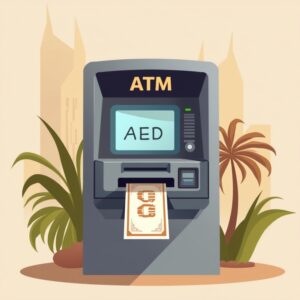
Which coins and notes are in circulation?
Daily transactions in Dubai are mainly done with notes and a few commonly used coins. Here’s an overview of what you’ll encounter in shops, hospitality, and services:
Coins
- 1 Dirham
- 5 fils
- 10 fils
- 25 fils
- 50 fils
Although there are also coins of 1, 5 and 10 fils, these are not used in practice. As a result, amounts are usually rounded to the nearest multiple of 25 fils.
Banknotes
- AED 5
- AED 10
- AED 20
- AED 50
- AED 100
- AED 200
- AED 500
- AED 1,000
All banknotes are equipped with security features such as watermarks, holograms, and ink that glows under UV light. Each note also displays an important symbol or building from the UAE, adding cultural value to the currency.
How do you use money in daily life in Dubai?
In daily life in Dubai, people use both cash and digital payment methods. Although Dubai is internationally known as a technologically advanced city, it is still very common to carry cash, especially in markets, taxis, or with small businesses.
Is cash payment common?
Cash payment is still common but is slowly being replaced by electronic payments. Large retail chains, restaurants, hotels, and services almost always accept debit cards, credit cards, and mobile payment solutions such as Apple Pay or Google Pay.
Where do you usually use cash?
- In traditional souks (markets)
- Small grocery stores or neighborhood shops
- Taxis that don’t have a card machine and don’t work with an app
- For tipping
Note: Some businesses only accept cash or set a minimum amount for card payments.
Can you pay with euros in Dubai?
No, euros are not accepted as a means of payment in shops or restaurants. You will need to exchange your money for AED or use a payment card. However, you can exchange euros for AED at some places, such as airports or large hotels.

Where and how can you exchange money in Dubai?
Exchanging money in Dubai is easy, quick, and safe. There are many recognized exchange offices, especially in shopping centers, tourist areas, and at the airport. Banks also offer this service, but often with less favorable rates.
What’s better: exchanging money in the Netherlands or in Dubai?
It is usually more advantageous to exchange money in Dubai. The exchange rates are often better, and there is strong competition between exchange offices (which means they all offer low prices). However, it’s useful to have a small amount of AED with you upon arrival for emergencies, taxis, or tips. This is handy in case you can’t access money immediately.
Where can you exchange money in Dubai?
- Exchange offices such as Al Ansari Exchange, UAE Exchange, Travelex
- Banks (for example Emirates NBD, Mashreq)
- Dubai International Airport (less favorable rate)
Do you have to pay fees to exchange money?
Some exchange offices don’t charge direct fees but profit from the difference between buying and selling prices (the margin). Banks may charge additional commissions. Therefore, always compare the rate and ask about additional costs in advance.
If you’re planning to emigrate to Dubai, it’s useful (actually essential) to open a bank account in Dubai. This way, you can also have your salary paid in AED and use it for payments. This means you won’t have to deal with exchange rates constantly. Additionally, at the bank, you can arrange matters such as loans if you want to buy a house in Dubai, for example.
Want to read more about banks in Dubai? Then read: Banks in Dubai.
Can I pay with my debit card or credit card in Dubai?
Yes, it’s very normal in Dubai to pay with international payment cards. Visa and Mastercard are accepted almost everywhere. Debit cards with the Maestro or V-Pay logo can often be used as well, provided they are activated for use outside Europe.
Are there extra costs when paying with a foreign card in Dubai?
Yes, when paying with a foreign debit or credit card, you often pay:
- An exchange rate to AED
- Transaction fees from your own bank (often 1% – 2.5%)
- Sometimes a small local surcharge from the terminal provider
Check this with your bank before you leave.
Can you make contactless payments?
Certainly! Contactless payment is very common in Dubai. Apple Pay, Google Pay, and Samsung Pay are also widely accepted, especially in shopping centers, restaurants, and taxis. Just make sure your card is linked to an accepted payment system.
The official currency in Dubai is the Emirati Dirham, abbreviated as AED. Other commonly used abbreviations are Dh or Dhs. One dirham is divided into 100 fils.
The exchange rate fluctuates, but on average it is around 1 EUR = 3.90 to 4.10 AED. The rate changes daily, so always check the current value with a reliable exchange service or bank.
No, you cannot pay directly with euros in Dubai. You will need to exchange your money for AED or use an international debit card or credit card.
Commonly used coins: 25 fils, 50 fils and 1 dirham.
Banknotes: AED 5, 10, 20, 50, 100, 200, 500 and 1,000.
Coins of 1, 5 and 10 fils are rarely in circulation.
Yes, you can pay almost everywhere in Dubai with Visa, Mastercard and Maestro/V-Pay. Make sure your card is activated for use outside Europe. Also, be aware of transaction fees and currency conversions.
